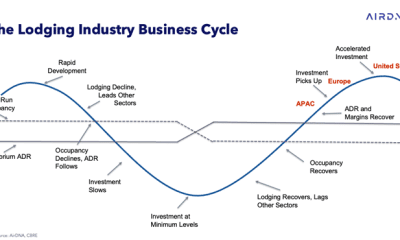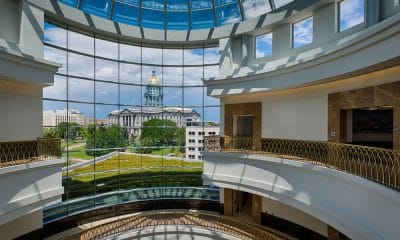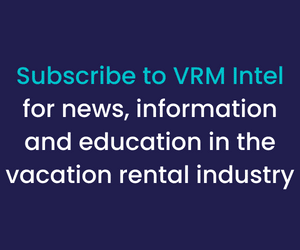
As we enter 2021, it has become clear that vacation rentals are the preferred lodging for those looking to spend time away from home. Remote work has incubated staycations, extended the average length of stay (ALOS) at rental properties, and shortened booking windows. Rental homes in drive-to destinations suddenly look much more attractive than those in urban areas—accommodating more space, boasting fewer crowds, and offering access to private amenities. In fact, RevPAR for short-term rentals decreased just 4.5 percent over the past year, compared to 64.8 percent for hotels. Finally, Airbnb’s IPO, at the end of 2020, demonstrated the resiliency and maturation of the vacation rental segment.
Despite these advances, it is clear that the vacation rental industry is at a crossroads. The events of this past year and the anticipation of more uncertainty to come have brought further light to the topic of quality assurance, which I prefer to call quality service. Issues around safety and professionalism and how providers can automate workflows through technology to meet higher guest expectations and ensure efficient and profitable operations are at the forefront of industry conversations.
I know that operational technology is no longer just nice to have; it is critical to ensuring a quality service experience for both guests and homeowners. Purpose-built operational tools will be the essential armory for professional vacation rental property managers in 2021 and beyond. It’s a strong statement, but one I stand by. Here’s why.
Stricter guest expectations for property preparation and service
As an industry, we face great challenges, many of which stem from consumer expectations for property preparation, timely communication, and in-stay experiences. The components of quality service were important considerations well before 2020, but today’s travelers expect nothing less than perfection.
As noted in last summer’s 2020 Operations Report by Breezeway, two out of every three vacation rental managers expect that cleanliness and safety will be the most important booking factors moving forward. Just imagine showing up at a vacation rental after months without travel (with heightened awareness about hygiene and safety) only to find the property’s condition and presentation are well short of what was advertised.
But safeguarding against this scenario by maintaining exemplary housekeeping standards requires extra time and effort. For example, our clients are spending an additional 25 minutes cleaning each unit, completing and verifying additional COVID-19 protocols, including disinfecting and sanitizing high-touch surfaces and cleaning linens at commercial-grade facilities.
The uncertainty of 2020 did not dissipate when we flipped the calendar to 2021. Vacation rental managers and operators are deploying comprehensive programs and using smarter processes and technologies to mitigate operational stress.
Technology adoption and fragmentation
I remember my time at FlipKey when back-of-house operations began to weigh down vacation rental professionals. Managers couldn’t turn to purpose-built tools like they do today and were stuck with spreadsheets and handwritten documents to schedule tasks and track issues and paper checklists to perform work and monitor brand compliance. These manual workarounds led to inefficiencies and inconsistencies, hindering client service and creating demand for new operational technologies.
The complexity of operations was magnified as consumers pushed for more quality and service. More intelligent solutions came to market, and a technological revolution gained momentum as vacation rentals grew. Then came COVID-19, underscoring the critical nature of meeting enhanced client demands and, in turn, accelerating the adoption of integrated technologies.
This digital transformation has lowered the barriers of entry in the rental market, and everyone, including business leaders, staff, homeowners, and guests, has become much more comfortable using technology to improve their lives. Software has become simpler to implement and often doesn’t involve costly hardware or onboarding. Professional managers can now rely on new technologies to easily manage teams and perform quality property services.
Providers have also gravitated away from one-size-fits-all technologies toward technologies with more singular focuses and deeper functionalities. This fragmentation—using different software for different business functions—allows for products with better connectivity and usability. This trend should continue as managers strive to automate services, deliver more value to clients, and differentiate their brands among a sea of competitors, all vying to impress the modern traveler.
Effective communication embodies brand values
Building a strong brand isn’t easy, and being able to consistently deliver and communicate service is part of the recipe for success. Vacation rental managers have historically taken a reactionary approach to communication and left guests alone until prompted otherwise.
Today, this is no longer the case. The trend for proactive engagement throughout the stay accelerated in 2020, becoming a basic expectation for many guests. In fact, three out of every four vacation rental managers plan on communicating with guests throughout their stays in 2021 and prefer SMS tools customized for the hospitality industry.
Guest texting is very much a part of vacation rental operations, and leading hospitality providers are tying messaging into their operational workflows. Doing so drives automation and makes for more proactive outreach, with easier two-way communication. For example, imagine a world where you can send bulk messages to guests staying in a specific type of property (with a pool, for example), or to guests in a specific area where there is a storm warning. In-stay communication can also be more dynamic, ensuring in-property standards are reached and offering additional revenue-generating features, such as early check-in, late checkout, extended stays, food delivery, and concierge services.
Operational technology offers a competitive edge
If property managers want to future-proof their businesses, they need to stay on top of changing guest expectations and get on board with operational technology. Investing in the automation of back-of-house processes will pay dividends and shore up business, allowing managers to face future uncertainties with confidence.
Increased competition, both in market and from a convergence of property segments, makes zeroing in on profit and cost structures all the more important. Using operational software can reduce head count, weed out inefficiencies, and increase uptake of revenue-generating additional services.
Automating processes affords more time and focus on other areas of your business and can greatly impact your bottom line.












RSS